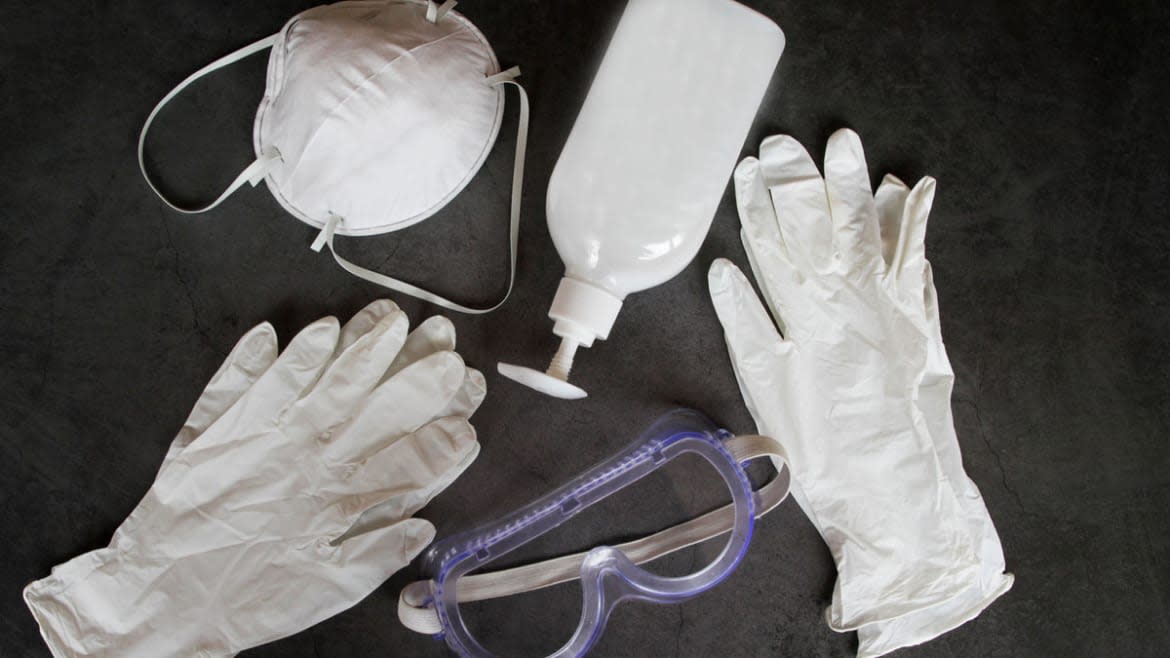Foreign Aid Groups Fighting COVID-19 Can’t Buy PPE With USAID Money

The foreign aid agency of the United States has informed grant recipients they can’t use federal money to purchase personal protective equipment (PPE), The Daily Beast has confirmed.
Former officials and foreign-aid workers said the effect will be to magnify the COVID-19 disaster in afflicted nations with weak public-health infrastructure, which is likely to have a blowback effect. As the pandemic explodes in less developed countries, infections could spread again to more affluent nations trying to recover from the first wave of the disease.
Nothing in this COVID-19 Pandemic Separates ‘Us’ From ‘Them’
The NGOs understand the changed policy to mean that they can’t use U.S. Agency for International Development (USAID) funds to purchase PPE either for their own staffs or to distribute to those in need.
New standard language in grant agreements from USAID expressly bars non-governmental organizations that receive USAID money from buying N95 respirator masks, “other filtering facepiece respirators,” air-purifying respirators and particulate filters and cartridges, surgical masks, gloves, ventilators, and “COVID-19 test kits that are meant for the United States market.”
“No funds under this award may be used for the procurement of [such] ‘covered material,’” reads USAID grant language shared with The Daily Beast and confirmed by USAID grant recipients.
Several existing USAID grant recipients have received the new notice, but it is unclear if USAID has formally added it to its new grant documents. USAID did not immediately respond to questions from The Daily Beast.
USAID’s rationale is to prevent the already PPE-starved U.S. from facing competition purchasing urgent medical gear as the coronavirus pandemic spreads. Its decision has been telegraphed for weeks ahead of the recent formalization.
Jeremy Konyndyk, who ran USAID’s Office of Foreign Disaster Assistance in the Obama administration, said the Trump administration had made a “scandalous” decision.
“I understand the political risk the administration feels they face here. But I can’t see this as anything but an extension of the basic incompetence with which the U.S. has managed its own domestic response,” said Konyndyk, who directed the U.S. response to the Ebola outbreak in West Africa. “What the world is going to see, at a moment when China is making a really big show of shipping their PPE all around the world, donating it to many many countries, is that the U.S. is competing with those countries for global PPE supplies and barring its humanitarian partners from helping them with PPE.”
One USAID recipient, Save The Children, said it was “extremely concerned” by the change and hoped the administration would carve out exceptions.
“Save the Children is aware of the new guidance and is extremely concerned. Being able to purchase PPE locally is critically important,” it said in a statement to The Daily Beast. “We are urging the U.S. Government to make provisions to allow us to procure the protective equipment we need in order to reach vulnerable children and families and protect our staff during this crisis.”
The NGO umbrella group InterAction told The Daily Beast, “Humanitarian organizations have a duty to protect their staff. If new regulations impede the purchase of masks and other PPE materials in countries around the world where the U.S. government is trying to beat back this global pandemic, then they are putting first responders’ lives, and U.S. backed efforts at risk.”
USAID did not immediately respond to questions from The Daily Beast.
The grant change was first reported by The New Humanitarian website earlier on Wednesday.
After coming under criticism earlier in the pandemic for sending PPE abroad while the U.S. faces its own PPE shortage, the administration’s coronavirus task force in late March placed a moratorium on sending its own PPE stockpiles to afflicted nations. Internal administration debate, reported by Politico, has discussed relaxing some of those restrictions.
A draft presidential memorandum reportedly envisioned the use of foreign aid for PPE “produced in the countries where it was needed.” All of which has left aid groups confused about what PPE and related materials they’re permitted to purchase.
The PPE shortfall in the United States is real. Healthcare workers in overburdened hospitals have had to improvise their own from garbage bags and other materials. States have found themselves in the unfamiliar position of competing with one another for ventilators, respirators, and other life-saving gear.
USAID grant recipients contacted by The Daily Beast were reluctant to speak for the record but confirmed the PPE restriction in the USAID grant language.
“Our field teams on the ground are already struggling to find enough PPE to safely mitigate the spread of the virus in crisis contexts,” said one recipient.
Konyndyk, now with the Center for Global Development, said the PPE shortage was a self-inflicted wound after the administration was slow to use the Defense Production Act to compel the manufacturing of medical equipment.
“Rather than invest in ramping up domestic production so we could meet our own requirements and provide help to poor countries—the administration is still dithering on that—there’s not enough PPE to go around here or overseas,” Konyndyk said. “As a humanitarian issue, that’s a disaster, but it’s also a reputational disaster for U.S. standing in the world. We’re making the whole world pay the price for our own incompetence.”
Get our top stories in your inbox every day. Sign up now!
Daily Beast Membership: Beast Inside goes deeper on the stories that matter to you. Learn more.

